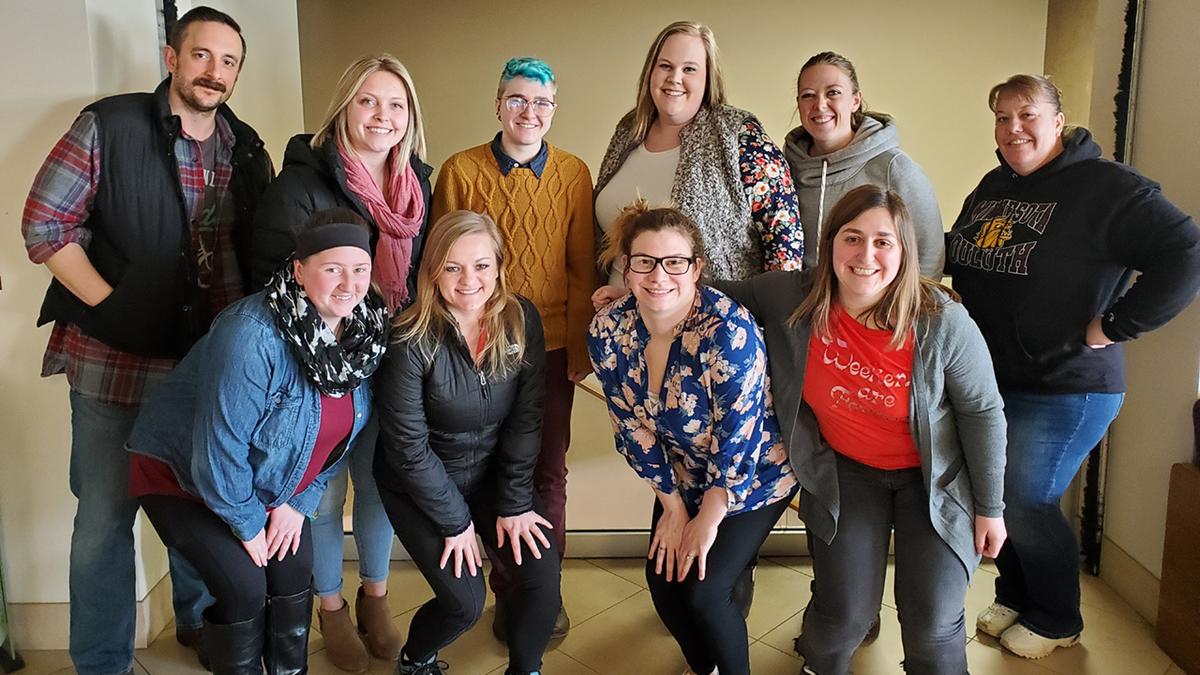Many people don't realize that clinical social workers provide the bulk of mental health services in the United States. They provide critical services to help people cope with everyday problems as well as persistent mental health issues, working in a variety of settings—from schools to hospitals, human service agencies, and beyond.
The UMD Department of Social Work is in its third year of a four-year grant to increase the number of clinically trained social workers in the workforce. In particular, the grant aims to address a lack of access to mental health professionals among underserved communities and in health professional shortage areas (HPSAs), which often includes rural areas.
The $670,000 in funding from the Health Resources and Services Administration supported the creation of the Clinical Scholars Program. Participants complete coursework related to mental health and clinical practice. The program focuses on training scholars to work in health shortage areas and has an interdisciplinary emphasis. It also prepares practitioners to work with underserved populations such as American Indians.
Lake Dziengel, associate professor of social work and director of the program, notes that UMD's clinical scholars learn about how factors such as systematic oppression can impact mental health. "There's a culturally responsive piece integrated into the program that really sets us apart," says Dziengel. "I think our curriculum provides students with a variety of modalities. In terms of therapeutic approaches, they aren't locked into one way of thinking."
A collaboration with the Medical School and College of Pharmacy enables clinical scholars to experience interdisciplinary learning alongside pharmacists, nurses, occupational therapists, physician assistants, and others. This integrated approach to health encourages collaboration among the various providers to ensure the best patient outcomes.
Graduates of the program must commit to working a minimum of one year in a rural or underserved community. The program requires a clinical training internship. During the clinical placement, which is supervised in a mental health setting, scholars receive a $10,000 stipend. "It's a great tuition benefit," says Dziengel. "For some students, it really makes a tremendous difference." Students can also access funds to help defray licensing fees.
By the end of the next academic year, the program will have trained 40 clinical social workers. This bodes well for the region's workforce. And graduates have a good job placement rate. "A lot of clinical scholars have been hired before they're even done with the program," notes Dziengel.
The effect on access to services is also significant. Graduates are working in a variety of settings, from the Fond du Lac Reservation to local nonprofits and health care organizations like Essentia Health. They're filling jobs in Brainerd, Bemidji, and on the Iron Range.
Clinical Scholars Making a Difference
Kaylen Knutson is in her second year of the Clinical Scholars Program. She initially considered becoming a clinical psychologist but realized a master's in social work was a better fit, appreciating the "systems and not just scientific approach."
She discovered a passion for youth mental health work by accident after applying for—and obtaining—a position at Essentia Health, which she initially thought was focused on adult mental health.
Knutson's fieldwork at The Hills Youth and Family Services fits well with her interests. During her initial internship, she worked with the day treatment program, facilitating support groups and assisting youth as needed throughout the school day.
Now as a clinical intern, Knutson is working as a therapist in the nonprofit's residential program. She works with individual youth as well as their families. She also runs a residential group.
Knutson credits the Clinical Scholars Program for helping her feel competent in this role. "Had I not had this opportunity, I don't know that I would feel as prepared to enter clinical work," she says. "I've had access to a lot of resources and support. It's been a great experience."
Matthew Delaini worked as a teacher for more than a decade before deciding to go back for a master's degree in social work. He's currently in his first field placement at Age Well Arrowhead, a small nonprofit that helps older adults stay in their homes by offering assistance with issues like transportation or grocery shopping.
Delaini makes home visits and assists with client care coordination. He works with caregivers to make sure they have support and don't get burned out. He also wrote a grant that's helping the agency reshape its grocery delivery program.
The hands-on involvement and one-on-one interactions have affirmed Delaini's decision to become a social worker. The internship also opened his eyes to issues in the realm of aging.
"The country is looking at huge demographic changes over the next couple of decades. We have to look at how that relates to the aging industry and the ability for people to age in the way they want to age," Delaini says.
For Delaini's second internship, he's hoping to get a placement in a palliative care unit to further expand his experience in the aging arena. "It feels like work that matters and will be important in the future," he says.
Pictured above in back row: Matt Delaini, Rebecca Overby, Connor Brandvold, Gabbie Suihkonen, Laura Halvorsen Fregard, and Darilyn Gitzen. Front row: Deanna Draz, Kaylen Knutson, Morgan Croatt, and Amy Merchant. Not pictured: Ella Tischer, Alan Spaude-Filipczak, and Courtney Remacle.
